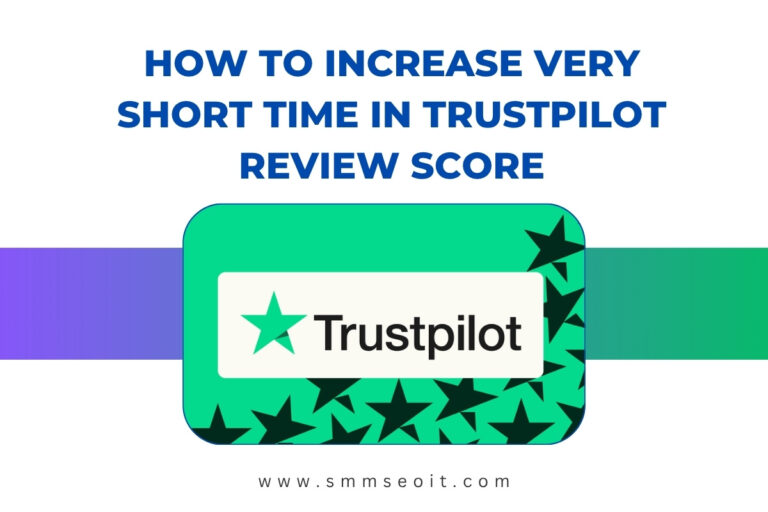How to build the best SEO Reports for Clients
In the ever-evolving digital landscape, Search Engine Optimization (SEO) has emerged as a pivotal strategy for businesses seeking online visibility and growth. However, the true value of SEO lies not just in its implementation but also in its effective communication. This is where SEO reporting becomes a game-changer, transforming complex data into compelling narratives that resonate with clients and stakeholders alike. SEO reports serve as a bridge between the intricate world of search algorithms and the tangible results that drive business success. They provide a comprehensive overview of website performance, highlighting key metrics, identifying areas for improvement, and ultimately, demonstrating the return on investment (ROI) of your SEO efforts.
Crafting captivating SEO reports is an art form that requires a delicate balance of data analysis, storytelling, and strategic communication. By mastering this art, you can elevate your client relationships, foster trust, and position yourself as a true partner in their digital journey.
Demystifying SEO Reporting
In the realm of digital marketing, transparency and accountability are paramount. SEO reporting plays a crucial role in fostering a culture of openness, responsibility, and cordiality – virtues that are essential for business growth and long-lasting client relationships. Effective SEO reporting not only showcases the tangible results of your efforts but also serves as a catalyst for identifying areas that require further optimization. By communicating your achievements and challenges transparently, you cultivate trust and nurture a collaborative dynamic with your clients, ultimately paving the way for sustainable success. Moreover, SEO reporting is instrumental in helping agencies and consultants allocate their resources judiciously and maximize their impact. By analyzing performance data and identifying trends, you can refine your strategies, prioritize your tasks, and ensure that your efforts are aligned with your clients’ overarching goals.
Tailoring SEO Reports: A Bespoke Approach to Client Needs
Every client is unique, with distinct business objectives, target audiences, and industry nuances. As such, a one-size-fits-all approach to SEO reporting is often ineffective and may fail to resonate with your clients’ specific needs. To truly captivate your clients and demonstrate your commitment to their success, it is essential to tailor your SEO reports to align with their goals and preferences. This bespoke approach not only showcases your dedication but also ensures that the information presented is relevant, actionable, and aligned with their priorities.
- Understanding Client Goals and Objectives: Before embarking on the journey of crafting an SEO report, it is imperative to have a clear understanding of your client’s goals and objectives. Engage in open dialogue, ask probing questions, and actively listen to their aspirations and concerns. Are they primarily focused on increasing organic traffic, boosting conversions, or enhancing their search engine rankings for specific keywords? Do they have a particular target audience or geographic region in mind? By gaining a deep understanding of their objectives, you can tailor your SEO strategy and reporting approach accordingly.
- Identifying Key Performance Indicators (KPIs): Once you have a firm grasp of your client’s goals, the next step is to identify the Key Performance Indicators (KPIs) that will serve as the foundation for your SEO reporting. These KPIs should be specific, measurable, achievable, relevant, and time-bound (SMART), ensuring that you can track progress effectively and demonstrate tangible results. Common SEO KPIs may include organic traffic, keyword rankings, backlink profile, domain authority, conversion rates, and page load times, among others. However, it is crucial to prioritize the KPIs that align most closely with your client’s objectives and industry best practices.
- Aligning Reporting Frequency and Format: The frequency and format of your SEO reports should be tailored to your client’s preferences and the complexity of their campaigns. Some clients may prefer monthly reports, while others may require more frequent updates, such as weekly or bi-weekly reports. Additionally, consider the format that best resonates with your client. Some may prefer visually appealing dashboards with interactive charts and graphs, while others may appreciate concise reports with clear data visualizations and actionable insights. By tailoring the frequency and format of your SEO reports, you demonstrate your commitment to meeting your client’s unique needs and fostering a collaborative partnership.
Crafting Compelling SEO Reports: A Holistic Approach
Crafting compelling SEO reports is a multifaceted endeavor that requires a holistic approach, encompassing data analysis, storytelling, and strategic communication. By mastering these elements, you can create reports that not only inform but also captivate and inspire your clients. At the heart of every successful SEO report lies a meticulous data analysis process. This process involves gathering and synthesizing data from various sources, such as Google Analytics, Google Search Console, SEMrush, Ahrefs, and other industry-leading tools. However, data alone is not enough. It is crucial to analyze and interpret the data in a way that uncovers valuable insights and identifies trends. Look for patterns, anomalies, and correlations that can shed light on the effectiveness of your SEO strategies and the areas that require attention.
Once you have uncovered the insights and trends hidden within the data, it is time to weave them into a compelling narrative. Effective storytelling is key to captivating your clients and ensuring that the message resonates on a deeper level. Craft narratives that highlight the journey of your SEO efforts, the challenges overcome, and the successes achieved. Use data visualizations, such as charts, graphs, and infographics, to support your narrative and make the information more accessible and engaging. Remember, storytelling is not just about presenting facts and figures; it’s about creating an emotional connection with your clients and helping them understand the impact of your work on their business. While data and storytelling are essential components of compelling SEO reports, strategic communication is what truly sets them apart. Effective communication involves delivering value and actionable insights that empower your clients to make informed decisions. Provide clear recommendations and actionable steps based on the insights gleaned from your data analysis. Outline the potential impact of these actions on their business objectives and the anticipated timeline for achieving desired results. Additionally, foster open dialogue and encourage client feedback. Actively listen to their concerns, address their questions, and incorporate their input into your ongoing SEO strategies. This collaborative approach not only strengthens your partnership but also ensures that your efforts remain aligned with their evolving needs.
Unveiling the Essence: Key Elements of Captivating SEO Reports
To create truly captivating SEO reports, it is essential to strike a balance between comprehensive data presentation and a concise, visually appealing format. By incorporating the following key elements, you can elevate your reports and ensure they resonate with your clients.
Executive Summary
The executive summary is the gateway to your SEO report, providing a concise overview of the most significant findings and recommendations. This section should capture the essence of your report, highlighting the key achievements, challenges, and actionable insights. Craft an executive summary that is clear, concise, and compelling, ensuring that even the busiest executives can quickly grasp the core message and the value you bring to their business.
Traffic Analysis
Organic traffic is often a primary concern for clients, as it directly impacts their online visibility and potential for growth. In this section, present a comprehensive analysis of the website’s organic search traffic, including page views, sessions, and trends over time. Highlight the sources of this traffic, such as specific keywords, campaigns, or referral channels, and provide insights into how these sources contribute to the overall traffic patterns. Additionally, compare the organic traffic to other channels, such as paid search or social media, to provide a holistic view of the website’s performance.
Keyword Performance
Keywords are the foundation of any successful SEO strategy, and their performance is a crucial indicator of success. In this section, analyze the performance of the target keywords, including their rankings, search visibility, and potential for improvement. Showcase the top-performing keywords, highlighting their impact on organic traffic and conversions. Identify opportunities for optimization by analyzing the keywords that have experienced fluctuations or have room for improvement in rankings.
Backlink Profile
A robust backlink profile is essential for establishing a website’s authority and credibility in the eyes of search engines. In this section, evaluate the website’s backlink profile, including the number of backlinks, the quality of the referring domains, and any changes in backlink acquisition. Highlight the strategies employed to acquire high-quality backlinks and the impact these efforts have had on the website’s overall search engine rankings and visibility.
Conversion Analysis
Ultimately, the success of an SEO strategy is measured by its ability to drive conversions and contribute to the client’s bottom line. In this section, delve into the conversion data, analyzing metrics such as conversion rates, revenue generated from organic traffic, and the performance of key conversion funnels. Identify the top-performing landing pages and highlight the factors that contribute to their success, such as compelling content, effective calls-to-action, or optimized user experience. Additionally, pinpoint areas for improvement by analyzing pages with lower conversion rates and providing recommendations for optimization.
Technical SEO
A strong technical foundation is essential for a website’s success in search engine rankings. In this section, present a comprehensive technical SEO audit, highlighting areas such as website crawlability, indexing, site speed, mobile-friendliness, and adherence to search engine guidelines. Identify any technical issues that may be hindering the website’s performance and provide actionable recommendations for resolving these challenges. Showcase the progress made in addressing previous technical issues and the impact these improvements have had on the website’s overall performance.
Competitor Analysis
In the dynamic world of SEO, it is crucial to stay ahead of the competition. In this section, provide a comprehensive analysis of the client’s top competitors, evaluating their search engine rankings, backlink profiles, content strategies, and overall online presence. Identify areas where the client is outperforming their competitors and highlight opportunities for further growth. Additionally, analyze the strategies employed by competitors that have proven successful, and explore ways to adapt and implement similar tactics to gain a competitive advantage.
Recommendations and Roadmap
A well-crafted SEO report should not only provide insights into past and present performance but also outline a clear roadmap for the future. In this section, present a comprehensive set of recommendations and actionable steps tailored to the client’s specific goals and challenges. Prioritize these recommendations based on their potential impact and feasibility, ensuring that the client can focus their efforts on the most impactful strategies. Additionally, provide a timeline for implementation and set realistic expectations for the anticipated results.
Data Visualization
Effective data visualization is crucial for making complex information accessible and engaging. In this section, incorporate a variety of visually appealing charts, graphs, and infographics to present your data in a clear and compelling manner. Choose the appropriate visualization techniques based on the type of data and the message you want to convey. For example, line graphs may be ideal for showcasing trends over time, while pie charts can effectively illustrate the distribution of traffic sources or conversions.
Branding and Personalization
Your SEO report is not only a representation of your work but also a reflection of your agency’s brand and professionalism. In this section, incorporate elements that align with your agency’s branding, such as logos, color schemes, and design elements. Additionally, personalize the report by addressing the client directly and tailoring the language and tone to resonate with their unique preferences and communication styles. This personal touch can go a long way in fostering a stronger connection with your clients and leaving a lasting impression.
Streamlining the Reporting Process: Leveraging Automation and Templates
While crafting compelling SEO reports is essential, the process can be time-consuming and resource-intensive, especially for agencies with a large client base. To streamline the reporting process and maximize efficiency, consider leveraging automation tools and pre-designed templates.
Automating Data Collection and Report Generation
Manual data collection and report creation can be prone to errors and inconsistencies, not to mention the significant time investment required. Automation tools, such as SEO reporting platforms, can revolutionize this process by seamlessly integrating with various data sources and automating report generation. These tools allow you to connect to platforms like Google Analytics, Google Search Console, SEMrush, Ahrefs, and more, ensuring that you have access to the most up-to-date and accurate data. Additionally, they enable you to schedule report generation and distribution, ensuring that your clients receive their reports on a consistent and timely basis.
Utilizing Pre-Designed Templates
While customization is key to creating compelling SEO reports, starting from scratch for every client can be inefficient and time-consuming. Pre-designed templates can serve as a solid foundation, providing a structured layout and a starting point for incorporating client-specific data and insights. Many SEO reporting platforms offer a wide range of pre-designed templates tailored to different industries, client needs, and reporting formats. These templates often include pre-populated sections for common metrics and visualizations, allowing you to focus your efforts on customization and value-added analysis.
White-Labeling and Branding Capabilities
As an agency or consultant, maintaining a consistent brand identity across all client-facing materials is crucial. SEO reporting platforms often offer white-labeling and branding capabilities, enabling you to seamlessly incorporate your agency’s logo, color schemes, and design elements into the reports. This level of customization not only enhances the professional appearance of your reports but also reinforces your agency’s brand and fosters a stronger connection with your clients.
Client Access and Collaboration:
Effective client communication and collaboration are essential for ensuring the success of any SEO campaign. Many SEO reporting platforms offer client access features, allowing your clients to view their reports and dashboards at their convenience. This transparency builds trust and facilitates ongoing communication about the SEO strategy’s performance. Additionally, some platforms provide collaboration features that enable clients to provide feedback directly within the tool, streamlining the review process and ensuring that their input is incorporated into future iterations of the report.
Embracing Continuous Improvement: Refining Your SEO Reporting Process
SEO reporting is an ongoing journey, and as your agency grows and evolves, so too must your reporting processes. Embracing a mindset of continuous improvement is essential for staying ahead of the curve and delivering exceptional value to your clients.
- Soliciting Client Feedback: Your clients are the ultimate judges of the effectiveness and clarity of your SEO reports. Regularly soliciting their feedback is crucial for identifying areas for improvement and ensuring that your reports continue to meet their evolving needs and preferences. Encourage open and honest communication, and be receptive to constructive criticism. Implement changes based on their feedback, and demonstrate your commitment to delivering a tailored and exceptional experience.
- Staying Abreast of Industry Trends and Best Practices: The world of SEO is constantly evolving, with search engines regularly updating their algorithms and best practices. To maintain the relevance and accuracy of your SEO reports, it is essential to stay abreast of these industry trends and adapt your reporting processes accordingly. Attend industry events, participate in online communities, and engage with thought leaders to gain insights into emerging trends and best practices. Continuously refine your reporting methodologies to ensure that you are providing your clients with the most up-to-date and actionable information.
- Leveraging Advanced Analytics and Reporting Tools: As the complexity of SEO campaigns increases, so too does the need for advanced analytics and reporting tools. Continuously evaluate and adopt new technologies and platforms that can enhance your data analysis capabilities, streamline your reporting processes, and provide more comprehensive and insightful reports. Invest in tools that offer advanced data visualization capabilities, predictive analytics, and integration with emerging data sources, such as voice search and Internet of Things (IoT) devices. By staying at the forefront of technological advancements, you can maintain a competitive edge and deliver unparalleled value to your clients.
- Fostering a Culture of Continuous Learning and Collaboration: Ultimately, the success of your SEO reporting process lies in the collective expertise and collaboration of your team. Foster a culture of continuous learning and knowledge sharing, encouraging team members to explore new techniques, attend training sessions, and share their insights and best practices. Collaborate across departments and disciplines, leveraging the collective expertise of your content creators, designers, developers, and analysts to create truly exceptional SEO reports that captivate and inspire your clients.
Conclusion
In the ever-evolving digital landscape, crafting captivating SEO reports is not just a necessity; it is an art form that can elevate your agency’s reputation and foster long-lasting client relationships. By mastering the art of data analysis, storytelling, and strategic communication, you can transform complex data into compelling narratives that resonate with your clients and stakeholders. Embrace a bespoke approach, tailoring your reports to align with your clients’ unique goals and preferences. Incorporate visually stunning data visualizations, and leverage automation tools and pre-designed templates to streamline your reporting processes.
Remember, SEO reporting is an ongoing journey, and continuous improvement is the key to staying ahead of the curve. Solicit client feedback, stay abreast of industry trends, and foster a culture of collaboration and continuous learning within your team. By following these principles and embracing the art of SEO reporting, you can elevate your agency’s reputation, strengthen client relationships, and ultimately, drive sustainable success in the ever growth and prosperity of your clients’ businesses.
The Paradigm Shift: Embracing Holistic Digital Marketing Reporting
In today’s digital landscape, where customers seamlessly navigate across multiple touchpoints and channels, it has become increasingly evident that siloed reporting approaches are no longer sufficient. As an agency or consultant, you must embrace a holistic mindset that transcends the boundaries of individual marketing disciplines and presents a cohesive picture of your clients’ overall digital presence.
While SEO remains a cornerstone of digital marketing strategies, its impact is amplified when integrated with other channels, such as paid search and social media. By combining data from these complementary channels, you can provide your clients with a comprehensive understanding of their audience’s behavior, preferences, and engagement patterns across various platforms. Incorporate paid search metrics, such as cost-per-click, click-through rates, and conversion rates, to showcase the interplay between organic and paid efforts. Similarly, include social media metrics like reach, engagement, and audience demographics to highlight the synergies between SEO and social media strategies. Effective digital marketing reporting goes beyond mere data presentation; it should align with your clients’ broader marketing objectives and business goals. Collaborate closely with your clients to understand their overarching objectives, whether it’s increasing brand awareness, driving lead generation, or boosting e-commerce sales. Tailor your reporting to showcase how your SEO efforts contribute to these broader objectives, and provide actionable insights that enable your clients to make informed decisions across their entire marketing ecosystem. While digital marketing data is invaluable, it often tells only part of the story. To truly understand the impact of your SEO efforts, consider incorporating offline data and customer insights into your reporting. Integrate data from customer relationship management (CRM) systems, point-of-sale (POS) systems, and customer surveys to provide a holistic view of your clients’ customer journeys. This comprehensive approach not only enhances the depth of your reporting but also fosters a deeper understanding of the customer experience, enabling you to refine your strategies for maximum impact.
As the digital landscape continues to evolve, the ability to anticipate trends and make data-driven decisions becomes increasingly valuable. Leverage predictive analytics and forecasting techniques to provide your clients with insights into future performance and potential opportunities. Incorporate machine learning algorithms and advanced statistical models to forecast search trends, identify emerging keywords, and predict the impact of your SEO strategies on key metrics such as traffic, conversions, and revenue. By empowering your clients with these forward-looking insights, you position yourself as a strategic partner, enabling them to stay ahead of the curve and capitalize on emerging opportunities. Effective digital marketing reporting requires a collaborative approach that involves cross-functional teams within your agency or consultancy. Foster an environment where SEO specialists, paid search experts, social media strategists, and data analysts work in tandem, sharing insights and leveraging each other’s expertise. Encourage regular cross-functional meetings and knowledge-sharing sessions, where team members can discuss their findings, identify synergies, and develop integrated strategies that deliver maximum value to your clients. By embracing a holistic approach to digital marketing reporting, you not only provide your clients with a comprehensive understanding of their online presence but also position yourself as a trusted strategic partner. This approach fosters a deeper appreciation for the interconnectedness of various marketing channels and enables you to deliver truly impactful and data-driven solutions that drive sustainable growth for your clients’ businesses.




